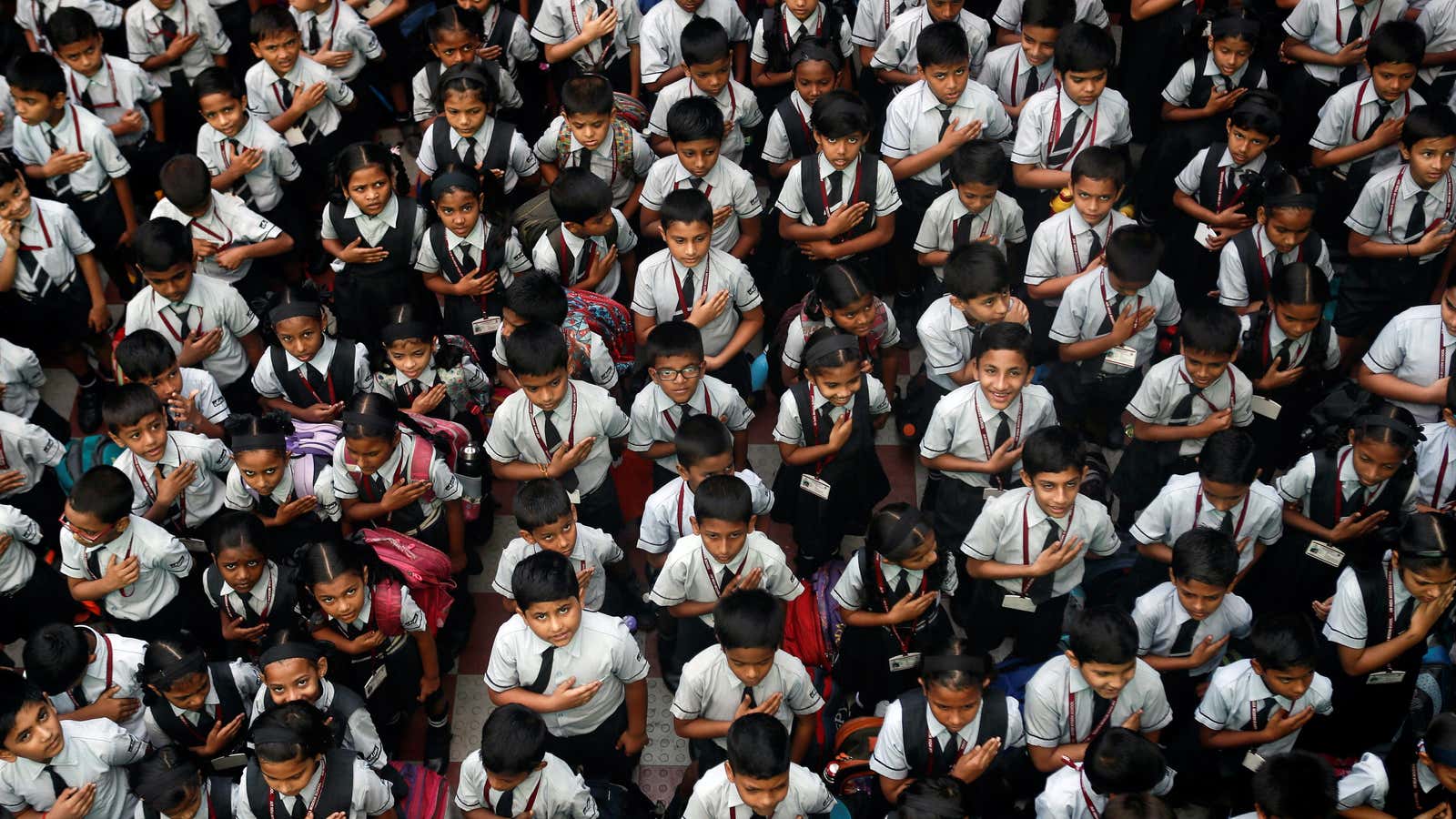Primary education, in the last decade, has focussed on helping young children learn to read and do basic math. This is indeed critical given that half of India’s children cannot read a Grade 2 text or do subtraction.
However, these skills may not be sufficient by themselves to equip children for essential tasks in higher education, the workforce, and life.
The Annual Status of Education Report (ASER) 2019, released last month, shows that even among Grade 1 children, who could solve numerical problems such as “3+5,” nearly 25% could not answer application-based problems such as how many toffees they’d have if given three toffees in addition to the five toffees they already have.
While private school children are better at solving numerical problems than their government school peers, the lead reduces substantially when it comes to the application-based question.
From this, it becomes clear that our system of rote memorisation and relentless drilling, kicks in from Day 1. Many toddlers, aged four to six years are learning math blindly through practice, but without the cognitive skills to apply it to even basic real-world situations.
Persistent problem
Does the lack of cognitive skills get solved as children grow older, smarter, and start interacting more with the world around them?
Unfortunately not, as is demonstrated by the ASER 2017 survey, which measured learning levels across India. This showed that of the 14-18-year-olds who could read fluently, nearly 30% could not apply these reading skills to understand how to use an Oral Rehydration Solution (ORS) based on written instructions on the packet.
Such youth, while technically literate and numerate, won’t be able to apply for a job, register as voters or follow written instructions by doctors.
The root of this problem starts at the age of three or four.
Literacy and numeracy do not automatically imply the cognitive development to functionally apply these skills in everyday life and school. In fact, ASER 2019 additionally shows that cognitive skills such as pattern recognition, sorting objects by size and colour, and spatial awareness are strongly correlated with academic skills such as the ability to read or solve sums.
Catch them young
Such cognitive skills develop early in life. Research shows that 90% of a human’s brain development occurs by the age of six. The three- to six-year period are also a critical time to develop social and emotional skills such as the ability to positively interact with others and regulate one’s own emotions. Catching up later on these dimensions is extremely difficult.
This means that most low-income children have fundamentally lost the game of life even before they enter formal, compulsory school in Grade 1—the stage at which all our reform efforts in school are focussed.
In an age when information and processing power is easily available, the most critical 21st-century skills are the cognitive abilities to comprehend and solve problems. With the advent of mobile calculators and speech-to-text processing, we may be able to “outsource” mechanical arithmetic functions or even reading of long texts to the machines.
But no machine can teach us how to frame or make sense of a problem statement, which is what life is about and is what the workforce will be increasingly about. We need to focus on developing such competencies in our children, well before we even begin formal education today.
The solution includes increasing both access to and breadth of, early childhood education. The government needs to expand and strengthen the network of its Anganwadi centres, which are the only affordable sources of childcare to a large chunk of children in the three to six year age group.
Across Anganwadi centres, government pre-schools and private pre-schools, the focus needs to include developing cognitive and social-emotional skills, in addition to purely academic skills (as is the case in primary school).
Such initiatives need to be of the highest priority within our education system and will generate the greatest returns in making our toddlers smarter, sociable and successful in school and beyond.
We welcome your comments at [email protected].
